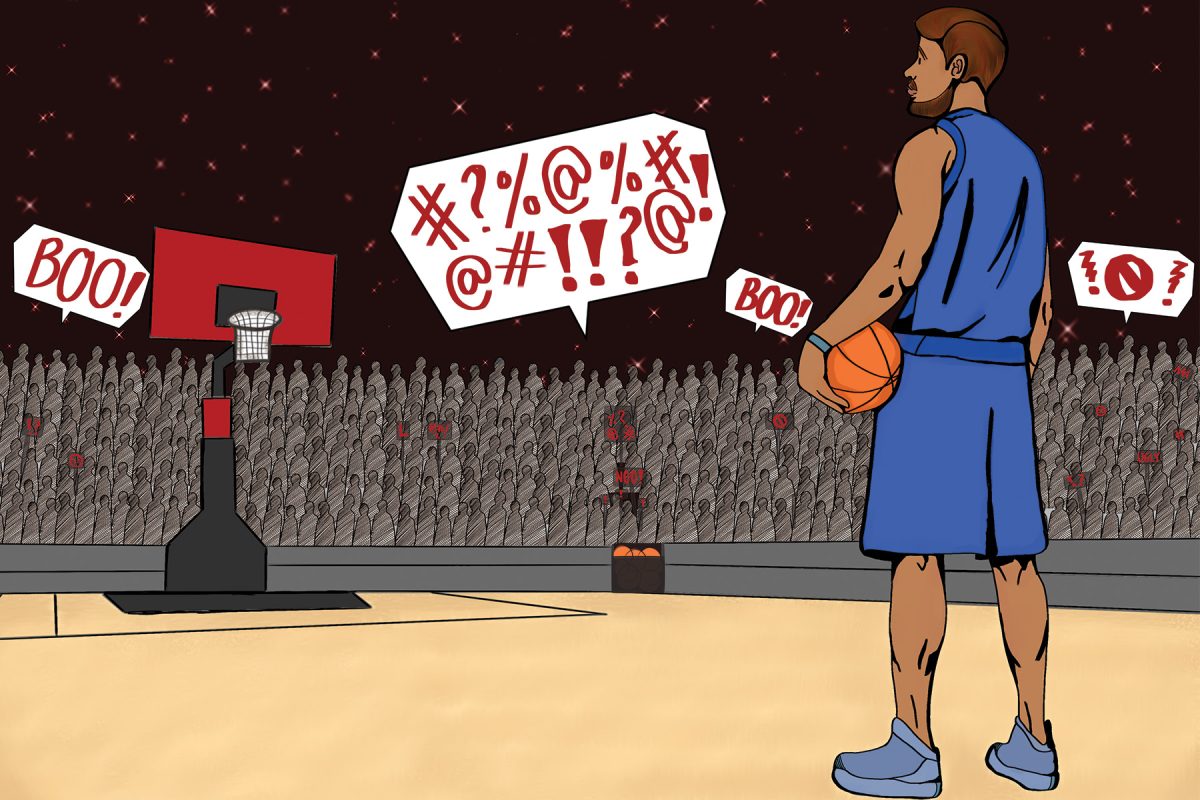Here in Calhoun, all you hear about is football. Football, football, football. For a town full of people so enamored with sports, they’re only really seeing the tip of the iceberg. Players of all sports are elevated to a deified level where impossible standards are placed on their shoulders. The reality of sports is much more than the games fans watch. The underbelly is a vast world of toxic masculinity, addictions, mental health issues, and a truly toxic fandom.
A Unreasonable Expectation
Sports have always been a field dominated by men. Only very recently have women’s sport teams been added to the rosters. But even then, fans tune in to men’s sports more than women’s sports. When they do watch them, it’s when men face off against those women.
All of these eyes on the male players create an issue. Sports fans expect so much from these male players, because they are meant to be “invincible”. If you’re a man playing a sport (especially football), you’re expected to always win. You’re never supposed to cry. You supposed to be strong. If you’re not, then nobody really cares about you anymore, and your pay is docked.
These are the kinds of values that some coaches instill in their male players.
Everybody makes mistakes, right? But one’s teammates and even their coaches may not think so. As a sports player, making a mistake is fatal. Some coaches and teammates reportedly verbally abuse and berate their players just for making the smallest of wrong moves. But, there’s more. Taking a good play makes those same people love and worship you. It’s a very toxic and confusing bubble that many players can’t help but frown at.
Society forgets that professional sports are a career. Players have to stake their lives on how they preform in games. If they aren’t good enough, then they cannot survive physically or mentally.
If these men feel inadequate with themselves, they are forced over-work themselves to the point where it’s unhealthy; and even resort to using performance enhancing drugs to keep themselves afloat.
But this doesn’t just happen in the real world. Fan toxicity is a plague on social media as well.
Crossing the Line Online
Online, you can hide behind your screen and be anybody. This is how disgruntled fans express their feelings about sports and certain players. Recently, users have sent vulgar and upsetting posts to male and female sports players. Some have encouraged suicide, threatened serious crimes, and contained crude and sexual remarks. When fans and even fellow players send these things, it instills mental problems in the victims.
According to a 2024 study, 70% of sports players suffer from anxiety and depression from words from coaches and teammates. These mental illnesses can lead to addictions that ruin a player’s life, like alcoholism and drug abuse. This can also lead to self-harm and even suicide itself.
All of this is harmful to players, but there’s another facet to this issue. What about the fans?
Unruly in the Stands
If you’ve ever watched a football game, despite the age level of the players, some kind of disturbance will occur if a fan’s kid loses. Parents will lash out, and that’s just how it is.
These incidences are known as sports riots. They often occur when a certain team loses or something of the sort. The crowd then reacts violently, by throwing things, attacking others, and causing nuisances.
These happen at games and also in places where games are shown, like restaurants and bars. Sports riots can cause damage to places and can seriously injure people, like in this example.
Back in 2011, there was a very infamous incident related to sports riots, called the Vancouver Stanley Cup riot.
On the evening of June 15, in downtown Vancouver, Canada, a riot broke out almost immediately after the conclusion of the Boston Bruins’ victory over the Vancouver Canucks in game seven of the Finals of the National Hockey League to win the Stanley Cup.
Canucks fans were watching the game at a fan party, and were set off by losing. They set police cars on fire, and they climbed up on buildings. These fans began attacking the Queen Elizabeth Theatre (which was inhabited by 1,900 people watching a show) and over 150 people outside were injured.
887 charges were made against 300 people and 9 million dollars were spent on prosecuting and cleaning up the city after.
Of course, this is an extreme side of the coin, but it is proof that fans can be dangerous. Taking a sport too seriously is a common occurrence within the sports fandom, where all too often you see raging fans recorded on cellphone cameras. This generation is desensitized to violence and vulgar material, so riots aren’t taken as seriously as they should be.
In Summary
In conclusion, the world of professional sports is very toxic and unforgiving. Almost everybody places unrealistic expectations on players, especially male players. Social media is also used as a tool by fans to attack anyone who angers them. Sports riots happen everywhere because fans take the game too seriously.
While sports is beneficial in many ways, it is also counterproductive in many of their core values (like good sportsmanship and fair play). If sports is to continue in this day and age, something has to be done about the way society interprets sports as a concept.
Men don’t have to be perfect and strong to play sports, and people watching shouldn’t create riots just because they’re upset.

